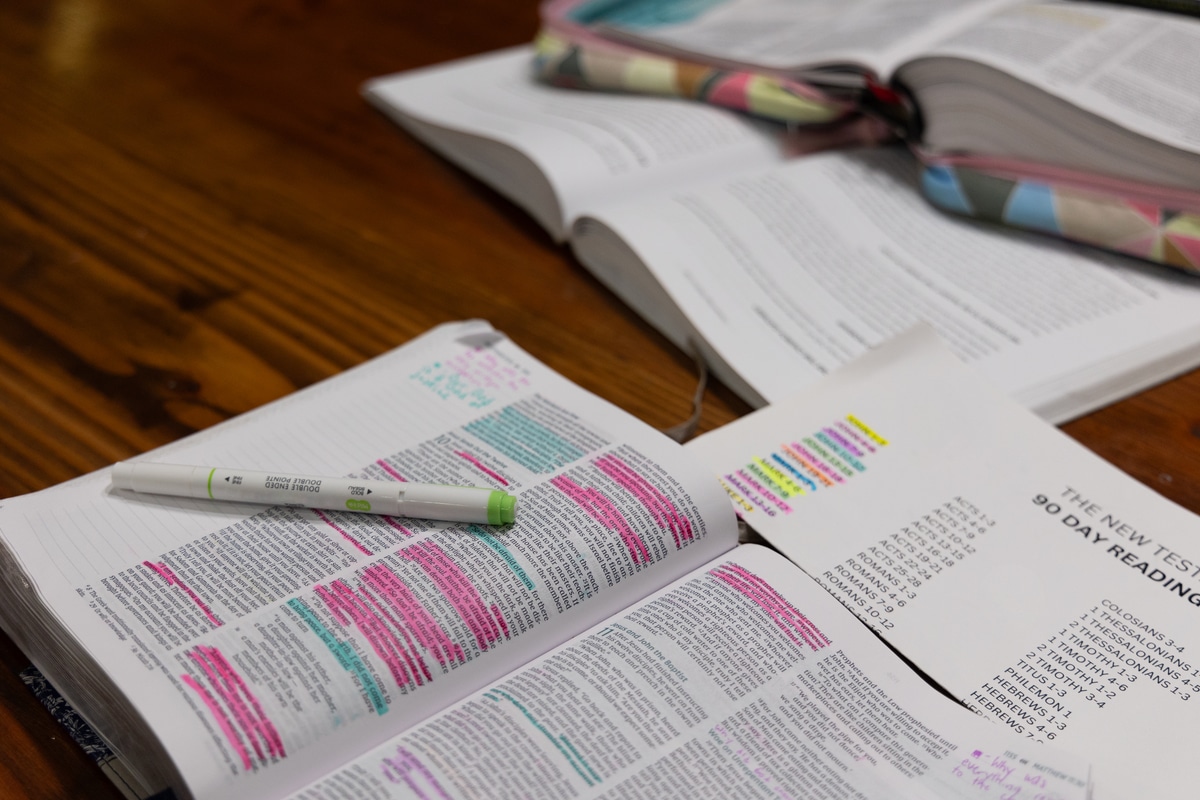How a person approaches reading through the Bible will vary from person to person, depending on their daily schedule and personality.
Some will want to read the Old Testament from Genesis to Malachi and the New Testament Matthew to Revelation. Some will read the OT one day and the NT the next. Some of you will read five days a week and use the weekends to catch up when you fall behind.
Time and place will vary.
Some of you will rise early to be alone with God and His Word. Some of you are night owls and reading before bedtime better fits your energy level and your schedule. Some of you will read during your lunch hour. There is no wrong way to read through the Bible.
We’ve published six months of a one-year reading plan from Crossway and the ESV Study Bible in this issue. We will publish the second six months in our July issue, so stay with it and stay tuned. Below are internet links to other excellent reading plans.
• The Navigators have an excellent, flexible plan along with additional study resources: https://www.navigators.org/mk212211-navigators-bible-reading-plan/?
• The M’Cheyne Bible reading plan. Through the OT once and NT twice by reading four chapters per day. https://bibleplan.org/plans/mcheyne/
• The Gospel Coalition points to several different reading plans, including a two-year plan and many variations here: https://www.thegospelcoalition.org/blogs/justin-taylor/bible-reading-plans-3/
How do I go about it? A few tips:
• Don’t be overwhelmed with guilt if you fall behind. Most of us do. Take your time to catch up. Consider reading through the Bible in two years.
• Avoid taking a legalistic approach to the Bible. Read it because you want to know God more deeply and not because you believe it curries favor with God when you read it or angry when you miss a day or a few days. The point is to grow you in your delight for God and His Word and in your hatred for sin and hunger for holiness.
• Use a trustworthy translation that you understand well. Some translations such as the popular King James Version or New KJV are tried and true, certainly trustworthy in their translation principles, but can bring struggles with the beautiful Elizabethan language contained therein. Let’s face it, we don’t use words like “vouchsafeth” and “raiment” much nowadays. If you love the KJV and it is your translation of choice, you should certainly use it. I was raised on it and still love the beauty of its language. Consider also these solid translations: English Standard Version (ESV), New American Standard Bible (NASB), or the Christian Standard Bible (CSB). Avoid Bibles that use gender-inclusive language for deity pronouns and the like; often, they are governed by a decidedly different translation philosophy that caters to our modern politically correct culture. God needs no editor.
• Consider using a good study Bible with trustworthy commentary notes and explanatory articles. A few that we’ve used that have helped tremendously are the MacArthur Study Bible; the ESV Study Bible — available from Crossway; the CSB Study Bible — from B&H Publishing; the Reformation Study Bible — available from Ligonier Ministries; the Apologetics Study Bible — from Broadman and Holman; and the NIV Biblical Theology Study Bible, edited by Don Carson, among others.
• Choose a time and place where you can have quiet, uninterrupted time. Try to be consistent in the time and place, if possible. Pray before you read. Ask God to shut out distractions and focus your mind. Ask God for illumination and application.
• Above all, take up and read God’s Word in 2024!
